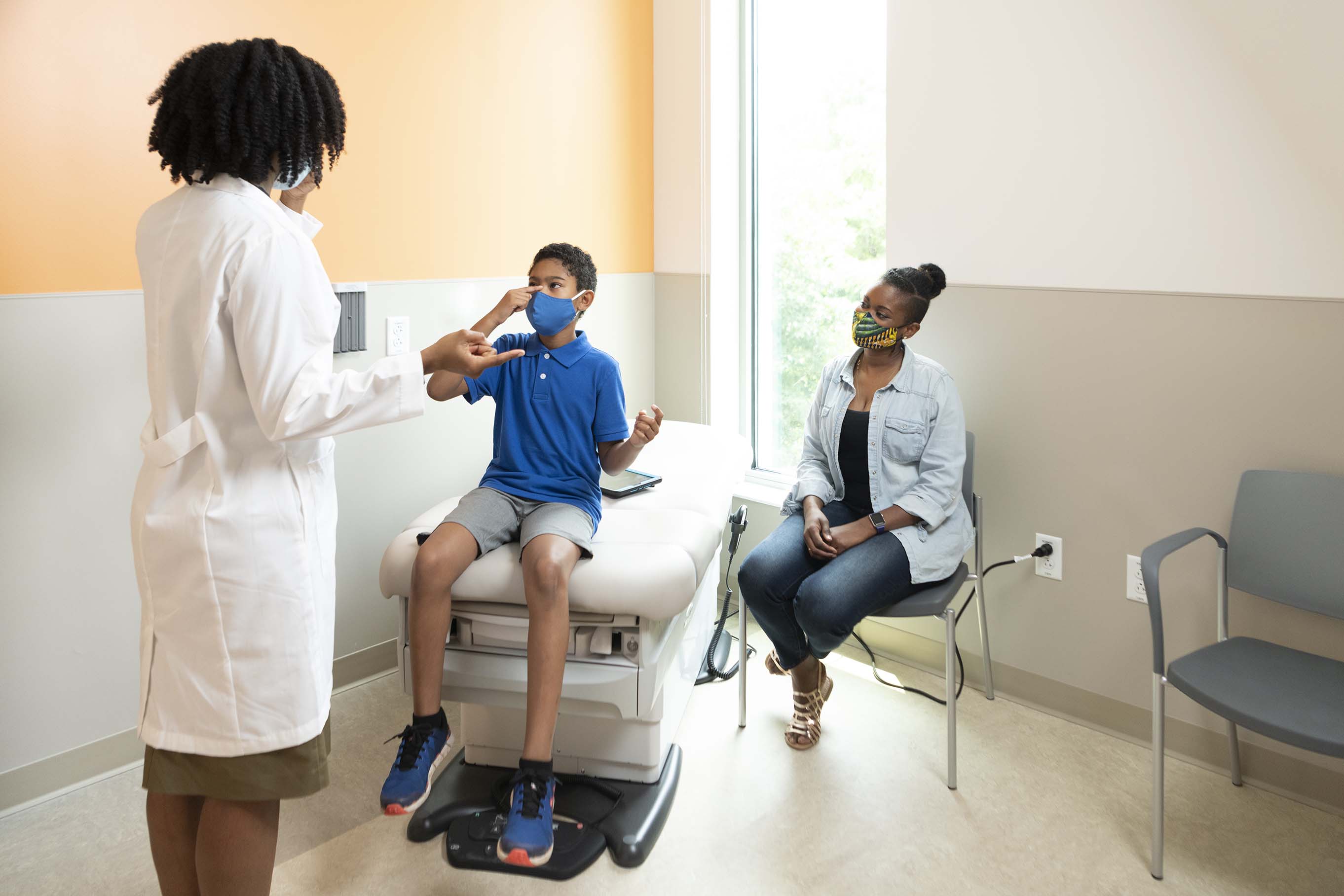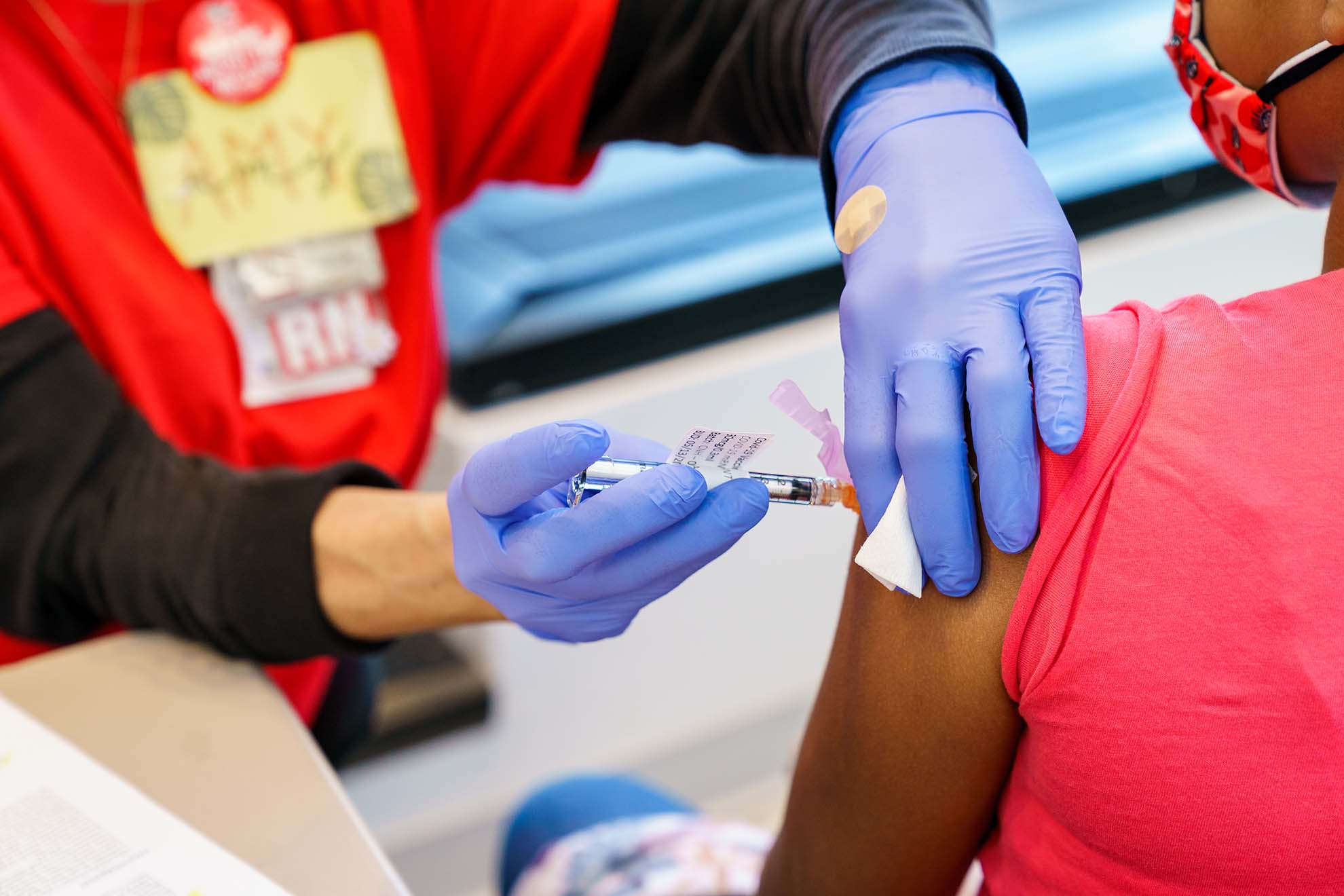CHILDREN'S NATIONAL RESEARCH INSTITUTE ACADEMIC ANNUAL REPORT 2022

Spotlight
Studying pediatric COVID-19 outcomes in collaboration with the NIAID
In July 2021, Children’s National Hospital announced a unique initiative in collaboration with the National Institute of Allergy and Infectious Diseases (NIAID) to examine the long-term effects of COVID-19 and multisystem inflammatory syndrome in children (MIS-C) after they had recovered from an infection.
The $40 million multi-year study has sought to recruit 1,000 children and young adults to provide important information about quality of life and social impact, in addition to a better understanding of the long-term physical impact of the virus, including effects on the heart and lungs. The researchers hope to detail the role of genetics and the immune response to COVID-19, so-called Post-Acute COVID-19 (sometimes termed "Long COVID" by the general population) and MIS-C, including the duration of immune responses from SARS-CoV-2, the virus that causes COVID-19. The study is fully funded by a subcontract with the NIH-funded Frederick National Laboratory for Cancer Research operated by Leidos Biomedical Research, Inc.
A comprehensive study
The aims of the study are to:
- Determine incidence and prevalence of, and risk factors for, certain long-term medical conditions among kids who have MIS-C or a previous COVID-19 infection.
- Evaluate the health-related quality of life and social impacts for participants.
- Establish a biorepository that can be used to study the roles of host genetics, immune response and other possible factors influencing long-term outcomes.
We don’t know the unique long-term impact of COVID-19 or MIS-C on children so this study will provide us with a critical missing piece of the puzzle," –Roberta DeBiasi, M.D., M.S.
“We don’t know the unique long-term impact of COVID-19 or MIS-C on children so this study will provide us with a critical missing piece of the puzzle,” says Roberta DeBiasi, M.D., M.S., chief of the pediatric Division of Infectious Diseases at Children’s National and lead researcher for this study. “I am hopeful that the insights from this enormous effort will help us improve treatment of both COVID-19 and MIS-C in the pediatric population both nationally and around the world.”
Over the past year, more than 3.6 million children have tested positive for COVID-19 and over 2,800 cases of MIS-C have been reported throughout the U.S. While most children who get COVID-19 may have mild or no symptoms, some develop severe illness and may require hospitalization, including life support measures.
In rare cases, some children who have previously been infected or exposed to someone with COVID-19 have developed MIS-C, a serious condition that may be associated with the virus. MIS-C symptoms can include fever, abdominal pain, bloodshot eyes, trouble breathing, rash, vomiting, diarrhea and neck pain, and can progress to shock with low blood pressure and insufficient cardiac function. Post-Acute COVID-19 is a wide range of symptoms that can last or appear weeks or even months after being infected with the virus that causes COVID-19.
The study is the only extramural-intramural partnership on the impact of COVID-19 in children and serves as a highlight of the pre-existing partnership between Children’s National and NIAID. Employing procedures such as computed tomography (CT), echocardiograms and pulmonary function tests, researchers will seek to gain a deeper understanding of the consequence of the diseases and of the duration of protective immunity.
The beginning of a multi-year study
Currently in its first year of recruitment, the study is still looking for participants aged 0-21 who have recovered from COVID-19 or MIS-C, as well as healthy controls for an additional year. Patients from anywhere in the United States are eligible for enrollment and can attend study visits at either the Children’s National Hospital in Washington, D.C., or the NIH Clinical Center in Bethesda, M.D. The study will provide a comprehensive understanding of how the virus may continue to impact patients once the infection subsides.
Children’s National was one of the first U.S. institutions to report that children can become very ill from COVID-19, despite early reports that children were not seriously impacted. In studies published in the Journal of Pediatrics in May of 2020 and June of 2021, Children’s National researchers found that about 25% of symptomatic COVID-19 patients who sought care at our institution required hospitalization. Of those hospitalized, about 25% required life support measures. Of patients with MIS-C, 52% were critically ill.
“Although we know that children are vulnerable to COVID-19, we still do not have a clear picture of how COVID-19 affects them in the long term,” said NIAID Director Anthony S. Fauci, M.D. “In adult patients, the long-term sequelae of COVID, including post-acute COVID-19, can significantly affect quality of life. Our investigations into the pediatric population will deepen our understanding of the public health impact that the pandemic has had and will continue to have in the months and years to come.”

